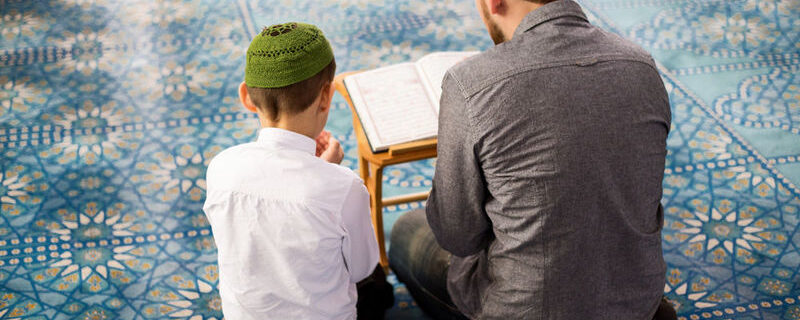“amr bi ‘l-ma’rûfwanahi ‘ani ‘l-munkar”
(Enjoining good and forbidding bad)

Allah(SWT) created humans in the best of mould, and then also degenerated them to the lowest of the low (due to non-obedience, transgression and other factors), except of course those who have faith and do righteous deeds.
Indeed, We created man in (the) best mound,
then We reverted him to the lowest of the low (95:4-6)
Thus Allah(SWT)knew the negative qualities that human possesses For example:
• Many among mankind are heedless of the Ayat (proofs, pieces of evidence, verses, lessons, signs, revelations, etc., (Surah Yunus, 10:92).
• Man does transgress (in disbelief and evil deed). Because he considers himself self-sufficient, (Surah Al-Alaq, 96:6-7, 100:6).
• Man is indeed an extreme wrongdoer, a disbeliever (an extreme ingrate who denies Allah’s (SWT) Blessings by disbelief, by worshipping others besides Allah, and disobeying Allah and His Prophet Muhammad SAW (Surah Ibrahim, 14:34).
• Man is miserly and holds back from spending for fear of exhaustion Surah Al-Isra 17:100).
• Man quarrelsome, impatient and arrogant (Surah An-Nahl,16:4), (Surah Al-Jathiyah, 45:35) (Surah Al-Kahf, 18:54).
• (Man) strives hard working for worldly desires, (Surah Al-Inshiqaq, 84:6)
Therefore in the backdrop of free will and freedom for human beings to choose either the right path or the wrong path (despite thorough guidance for those who fear Allah (SWT)(al-Anfal 8:29), Allah (SWT) ordained onepertinent guiding principle, amongst many, in this respect. Allah (SWT) has repeatedly reminded believers about ‘dos and don’ts’, which is (Amr-o-Nahi), in order toremain steadfast.
You enjoin Al-Maruf and forbid Al-Munkar and believe in Allah (3:110). Islam deals with all aspects of human life and seeks to create peace and concord in the social life of a Muslim society. It has established ways and guidance to promote good and prevent evil. To this end the most important social principle is known as "amr bi 'l-ma'rûfwanahi 'ani 'l-munkar" – meaning to bid the good or to promote the good, to forbid the evil or to prevent the evil, hence Amr-o-Nahi. This social principle in question is applicable both at an individual, as well as social levels, including within the sphere of families and friends, within the Muslim community and the human society at large. Itensures that the Muslim communities do not digress from the path of ethicality and morality. Both ethicality and morality are an individual's or society's acceptanceof what is right or what is wrong, regarding all aspects relating to beliefs, thoughts, intentions and behavior and all systems. This supports the social principle (Amr-o-Nahi) referred to above and allows individuals to live successfully and harmoniously in family units, social groups and societies, based on a few basics values of justice,compassion and tolerance, patience and truthfulness, amongst many other values, without any kind of transgressions, prohibited by Allah(SWT). The social principle (Amr-o-Nahi) or morality in Islam covers every facet of a Muslim's life, from simple manners of greetings fellow-beings (e.g. greetings of salaam and peace) to international relations to defining and establishing social, economic, legal and political and welfare systems. It is global in its range and its applicability. Allah (SWT)says: There should be among you (O believers), a group (of the learned and sincere persons) who should call (the people) towards goodness, bid (them) to the good and forbid (them) from the evil – they are the successful people (3:104). While describing the believers, Allah (SWT) says: ...The believing men and the believing women are helpers of each other: they bid the good, forbid the evil….. (9:71). Allah (SWT)further says: You are the best of peoples ever raised up for mankind; you enjoin Al-Maruf (all that Islam has ordained) and forbid Al-Munkar (all that Islam has forbidden), and you believe in Allah (3: 110).
The Prophet Muhammad (SAW)of Islam had also said that:
“My followers will be in good condition as long as they bid (each other) towards the good, forbid (each other) from the evil, and co-operate with each other in good (deeds), (Mustadruk al-wasailwaMustanbat al masail vol 12 pg.181).
It has been reported that ALI (AS)said: “Do not abandon enjoining good and forbidding evil, otherwise the evil people among you will take charge over you, and then when you supplicate, you will not be answered” (NahjulBalagah. Letter 47)
Both Allah (SWT) and Hisbeloved Messenger (SAW) have highlighted good and evil deeds, ranging from the smallest of the ‘sins’ to colossal transgressions (e.g. ‘Proclaiming to be God by Pharos) as equal, which should be avoided and prevented. Similarly, the minutest of the ‘good deed’ (e.g. removing an obstacle from the path for each other) to the whole system establishment such as ‘Islamic State’ are pointed out so that individuals are guided about what to do, say and what to avoidby remaining within Hadood(boundaries), specified by Allah(SWT).
Honest and just individuals establish honest and just societies and support family members and circles of friends first, and then any requisite systems – socio-economic and political. These virtuous individuals impact immediate social circles and eventually the whole society in turn.
(Except those) who have faith and do righteous deeds and enjoin each other to hold on to truth and enjoin each other to patience and (be steadfast) (103:3).
Allah (SWT) expects everyone to be responsible for this struggle (Jihad) and to play their part according to the position they hold, either social or professional.
Allah (SWT) has specifically commanded ‘dos and don’ts’ about the following five fundamentals, amongst many others,for establishing and running successful individual, social and global affairs. These five building blocks are key for personal development and transformation and in turn transformation and evolution at any macro level, where individuals and groups have roles to play, leading to harmonious, peaceful, pious and successful individual and collective living and system transparency and efficacy: These include:
(1) Amro-Nahi to do with OBLIGATORY DEEDS
(2) Amro-Nahi to do with INTERPERSONAL RELATIONS
(3) Amro-Nahi to do with JUSTICE AND JUST DEALINGS
(4) Amro-Nahi to do with RIGHTS AND RESPONSIBILITIES
(5) Amro-Nahi to do with VIOLATIONS AND TRANSGRESSION
Just to quote a few examples of Ayats from the Qur’an:
Allah (SWT) says:
(1) Establish regular prayers and pay Zakat (charity). (24:56, 31:4, 70:22-25, 75:31)
(2) Be a straight and upright believer. (46:13), Say good things to people (4:5, 4:8-9) Say “Peace” to the ignorant ones. (43:89), Return a greeting in a better manner (4:86), Lower your tone when you speak (31:19) and be humble (26:215).
(3) O you who have believed, be persistently standing firm in justice, witnesses for Allah, even if it be against yourselves or parents and relatives. Whether one is rich or poor, Allah is more worthy of both…. (4:135).
(4) Serve Allah and ascribe no partner to Him. Do good to your parents, to near of kin, to orphans, and the needy, and to the neighbour who is of kin and to the neighbour who is a stranger, and to the companion by your side, and the wayfarer, and to those whom your right hands possess. Allah does not love the arrogant and the boastful (4:36).
(5)Do not pray too loud, or too low in tone. (17:110).Do not sever the relationship with your relatives. (47:22-23). Do not steal the Orphan’s money or rip them off (.4:2, 4:10, 17:34,). Do not accept wicked and corrupt things (4:2)Do not corrupt the lands, the earth, people, and creations (7:56, 7:85). Do not use the Mosques to divide the Muslims (9:107-110) not bribe or take bribery. Also, corrupt money is forbidden (2:188)
Just to reiterate (Allah (SWT) says:
…and (join together) in the mutual teaching of Truth, and of Patience and Faithfulness (103:3).
This goes without saying that the one who enjoins what is right and forbids what is wrong should be complying with what he enjoins and avoiding what he forbids. This undoubtedly requiresknowledge, awareness, skills, personal development, and transformation i.e.,practicing before preaching an essential requirement.
Allah (SWT)remindsin Sura Baqara:
Do you enjoin righteousness upon others while you ignore your own selves, although you keep reciting the Book? Have you then no sense? (2:44).







